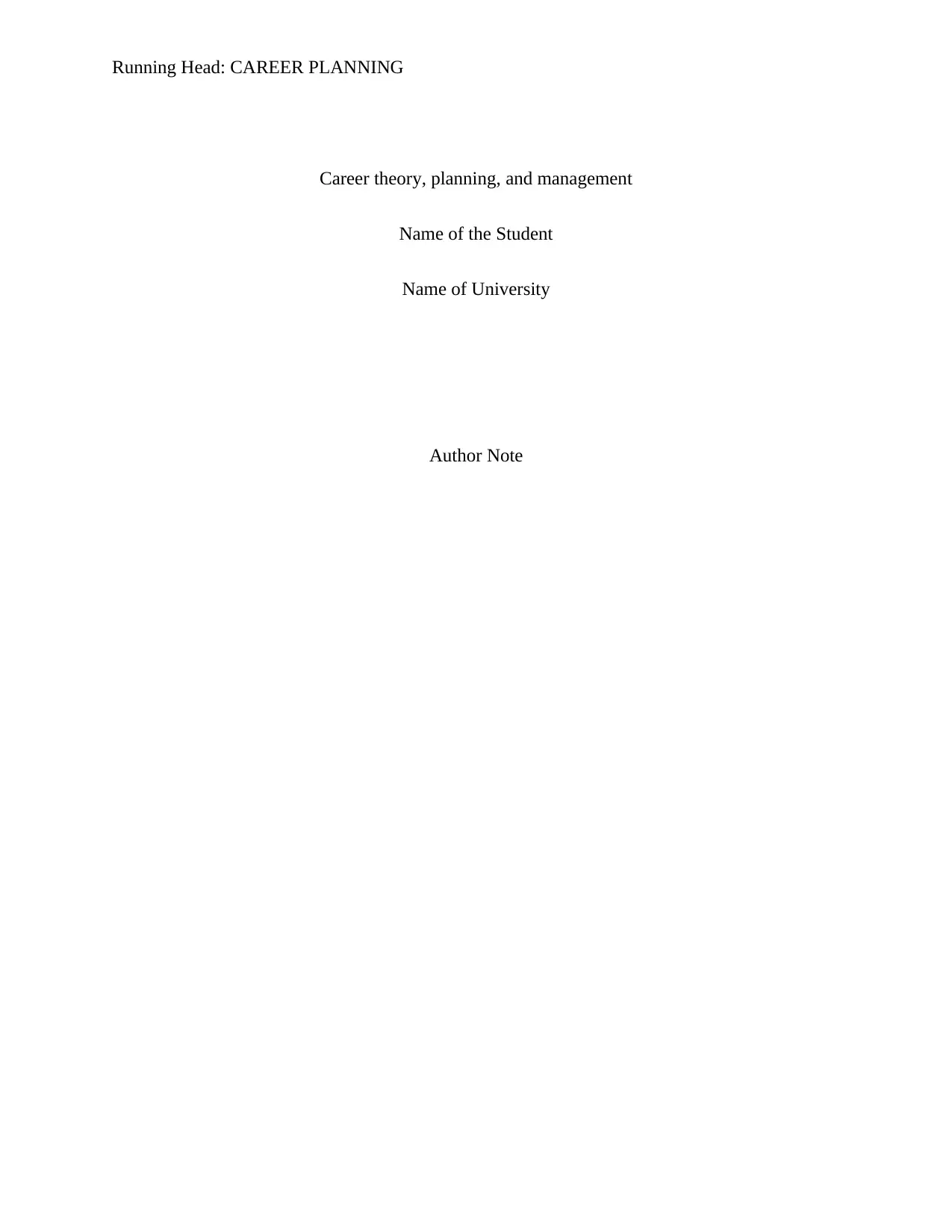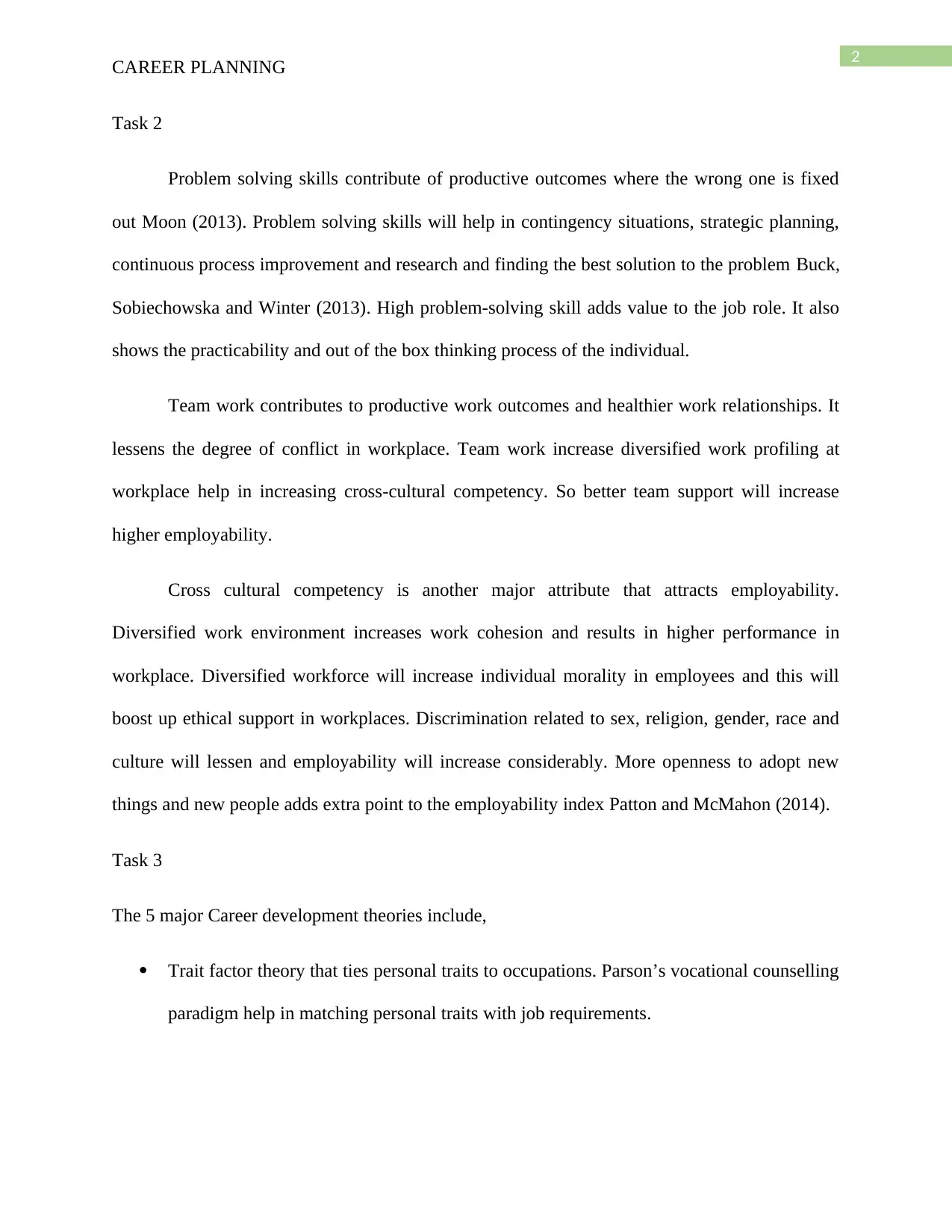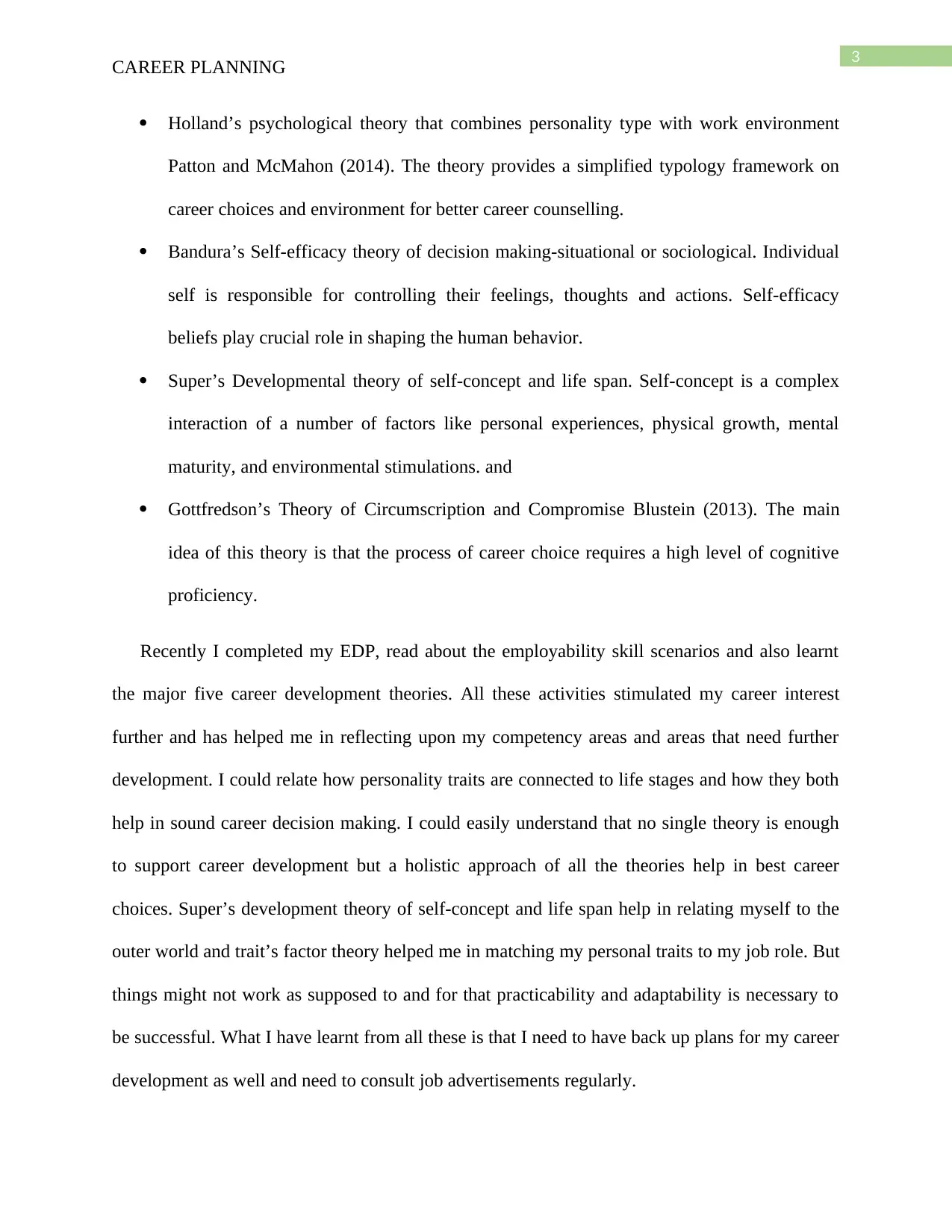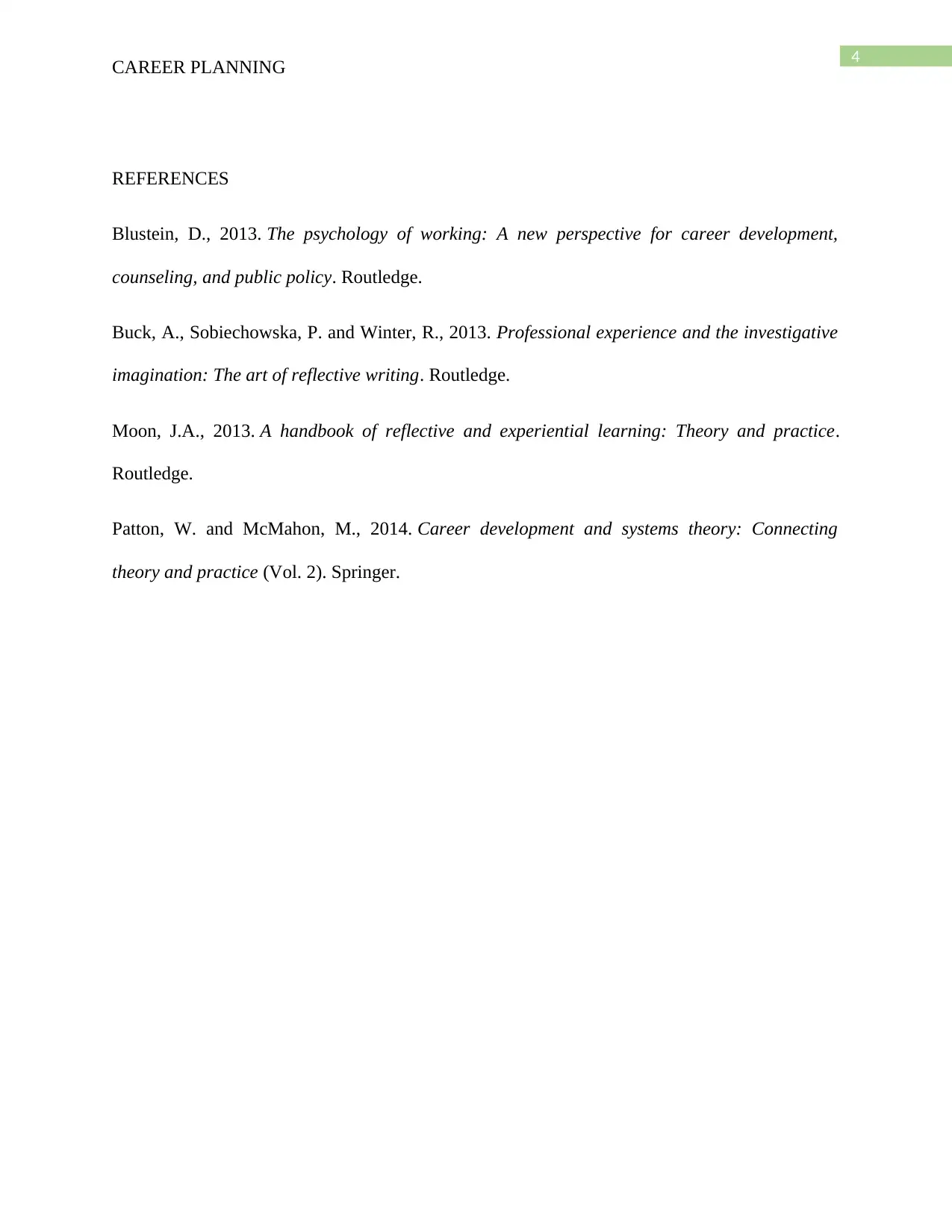Employability Skills, Career Theory, and Reflective Career Planning
VerifiedAdded on 2023/04/22
|4
|709
|463
Essay
AI Summary
This essay reflects on the integration of employability skills, career development theory, and personal experiences in the context of career planning and management. It begins by highlighting the importance of problem-solving, teamwork, and cross-cultural competency in enhancing employability. It then discusses five major career development theories: Trait Factor theory, Holland’s psychological theory, Bandura’s Self-efficacy theory, Super’s Developmental theory, and Gottfredson’s Theory of Circumscription and Compromise. The author reflects on how completing an Employability Development Profile and learning about these theories has stimulated their career interest and helped them identify competency areas and areas for further development. The essay concludes by emphasizing the need for adaptability, backup plans, and continuous monitoring of job advertisements for successful career development.
1 out of 4











![[object Object]](/_next/static/media/star-bottom.7253800d.svg)